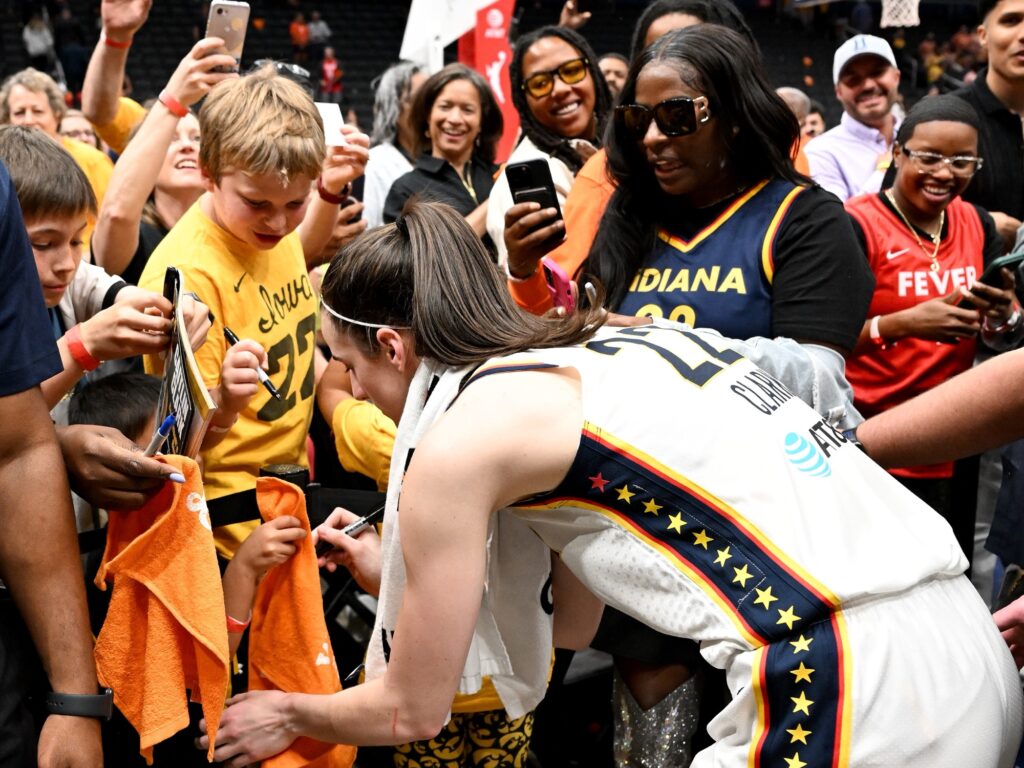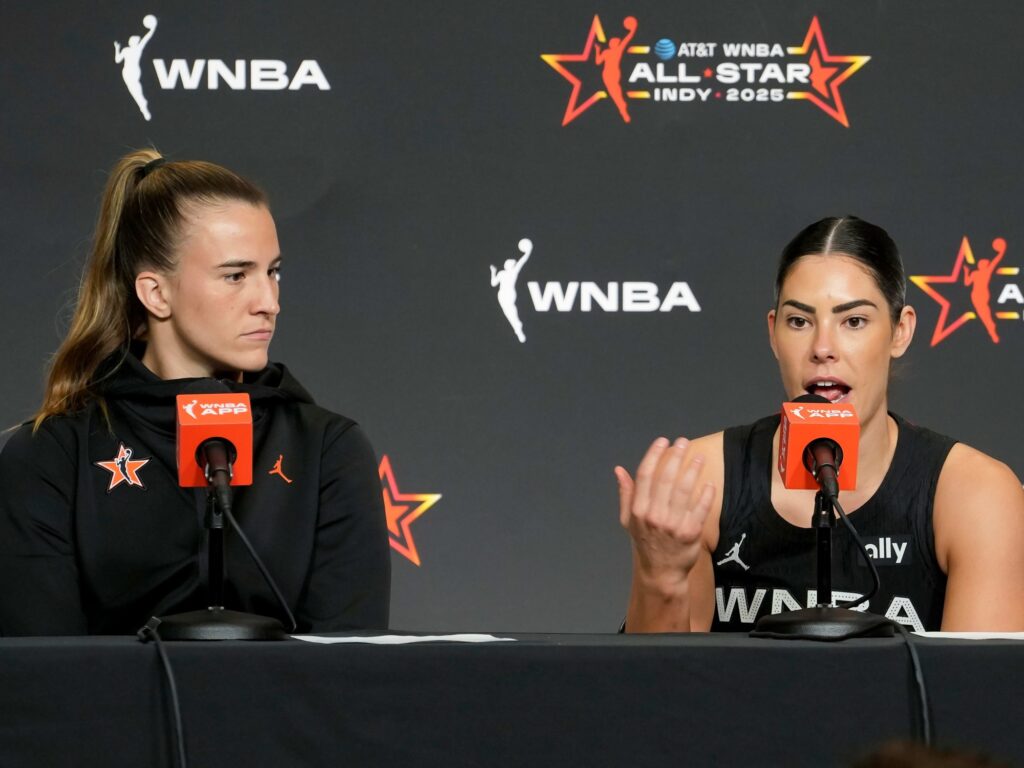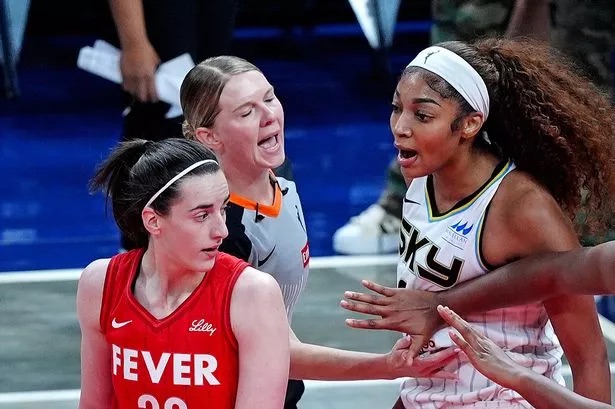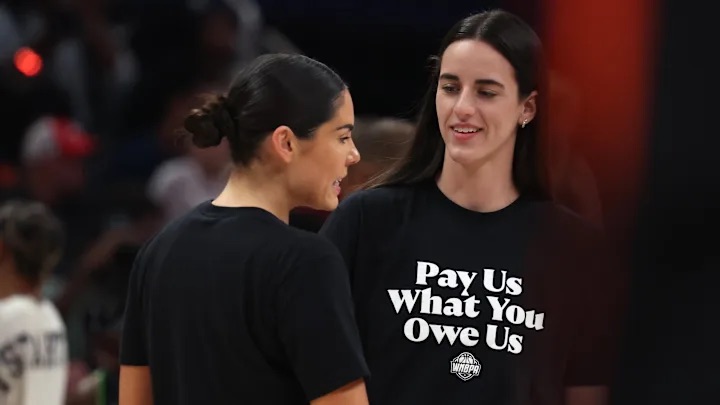The WNBA is having a record‑breaking season. Ratings are through the roof. Arenas are selling out. Jerseys are flying off shelves. National headlines are covering the league almost daily.
But behind all the growth, one thing is clear: Caitlin Clark is driving this surge — and the league’s players and leadership are mishandling the moment.
Instead of embracing Clark as the face of the league and using her to grow the sport for everyone, some WNBA players are letting jealousy and bitterness take over. And in the process, they’re turning off the very casual fans who are fueling this newfound success.
Here’s why the WNBA needs to wake up before it’s too late.
Caitlin Clark Is the Reason Fans Are Tuning In

Let’s be honest: the casual basketball fan didn’t suddenly fall in love with the WNBA overnight. They’re here because of Caitlin Clark.
Clark brought millions of new fans with her historic college career and carried that momentum right into the pros. Her games draw more viewers than entire playoff series in years past. Her presence has led to sellouts in cities that never came close before. Even WNBA owners have admitted the “Caitlin Clark Effect” is behind the league’s biggest sponsorships and expansion talks.
Clark is not just a player — she’s the product that casual fans are paying to see.
But what do those new fans see when they turn on a game?
They see her being disrespected on the court. They see teammates and opponents giving her the cold shoulder. And, most recently, they saw her called out by one of the league’s biggest stars, Kelsey Plum, during the All‑Star Game press conference.
Kelsey Plum’s Shot at Clark Was a Bad Look

At this year’s All‑Star Game, players made a collective statement by wearing t‑shirts that read:
“Pay Us What You Owe Us.”
It was a message to the league’s leadership — a demand for fairer pay and a bigger share of the revenue players help generate.
But after the game, Kelsey Plum used the media spotlight to take an unnecessary shot at Clark, saying:
“The t‑shirt was determined this morning. Not to tattletale — zero members of Team Clark were very present for that.”
To casual fans — the ones paying to watch Clark play — this sounded like more jealousy and pettiness.
It wasn’t a good look for the league. Clark, a rookie who is already bringing more money into the league than any player in history, was publicly singled out for not wearing a shirt demanding more money. It felt tone‑deaf, divisive, and ungrateful — and it only reinforced the perception that the WNBA resents its own rising star.
Instead of showing unity and gratitude for the attention Clark has brought to their cause, players like Plum are alienating fans and hurting their own fight for higher pay.
The Angel Reese Rivalry Could Have Been Magic vs. Bird

The WNBA also completely mishandled what could have been a historic rivalry between Caitlin Clark and Angel Reese.
Basketball fans still talk about how the NBA exploded in popularity in the 1980s thanks to Magic Johnson vs. Larry Bird. That rivalry brought excitement, headlines, and millions of new fans to the league. It wasn’t “good vs. evil” — it was two great players pushing each other to greatness.
The WNBA had that same opportunity this year with Clark and Reese. Instead, the media and some players framed it as “hero vs. villain,” turning Reese into the bad guy and Clark into the overhyped favorite. That toxic narrative divided fans and turned what could have been a powerful storyline into a needless feud.
Imagine if the league had leaned into the rivalry positively — showcasing two stars elevating each other and the game. Instead, it became another example of how the league fumbled a golden opportunity.
This Hurts Everyone
The WNBA has fought for years to get to this point — a season where casual fans actually care. But by treating Clark like an outsider and allowing jealousy to dominate the conversation, the league is shooting itself in the foot.
This hurts Caitlin Clark.
This hurts Angel Reese.
This hurts Kelsey Plum.
This hurts the league.
This hurts ticket sales.
This hurts TV ratings.
This hurts everyone’s paychecks.
It’s like cutting off your nose to spite your face.
The Right Play: Embrace Caitlin Clark
Caitlin Clark is the growth engine of the WNBA right now — and that’s good for everyone.
✅ Let her shine.
✅ Frame the rivalry with Reese as greatness vs. greatness, not good vs. evil.
✅ Stop singling her out in press conferences.
✅ Use her popularity to bring casual fans deeper into the league.
✅ Grow the pie so everyone — veterans, rookies, and stars — gets a bigger slice.
This is the WNBA’s Jordan moment. Don’t blow it.
Final Word
If the WNBA wants to secure its future and truly grow into what it can be, it’s time to stop the jealousy, stop the hostility, and start realizing that the best way forward is to let Caitlin Clark and Angel Reese bring in a whole new generation of fans — together.
Because casual viewers aren’t here for the pettiness. And if you push them away, you’re just shooting yourself in the foot.
